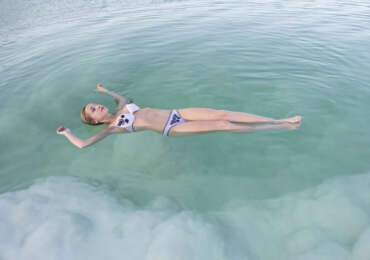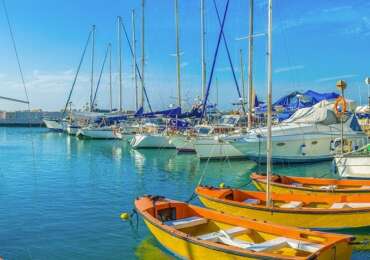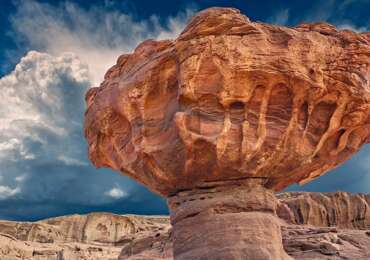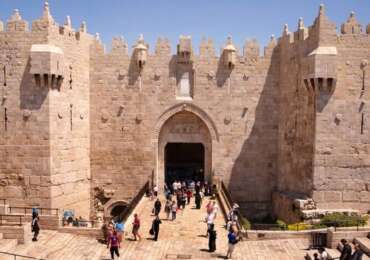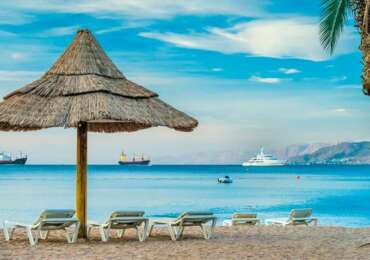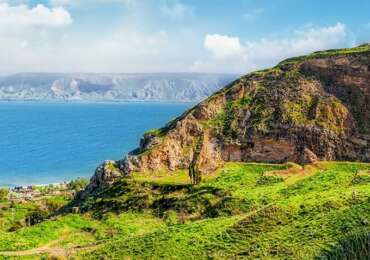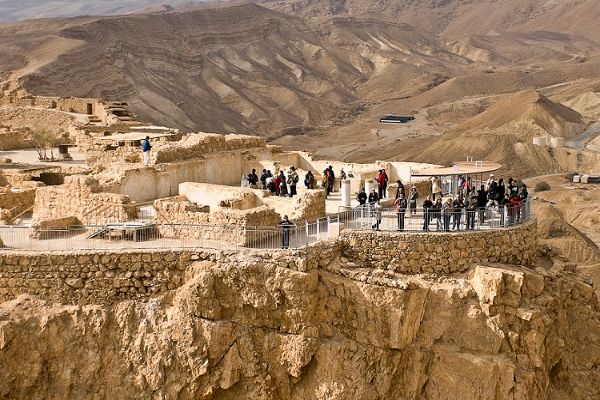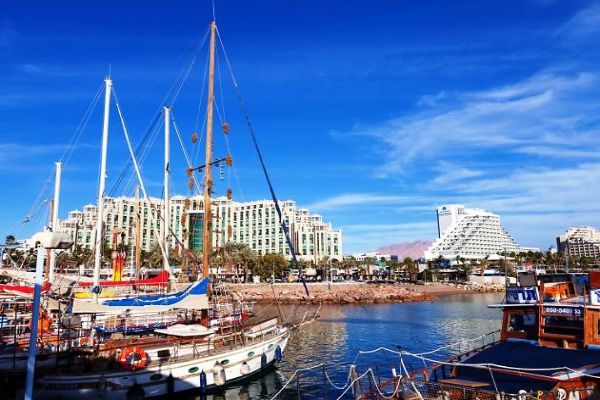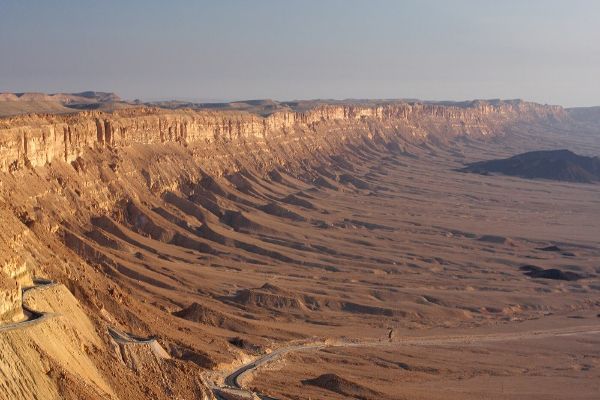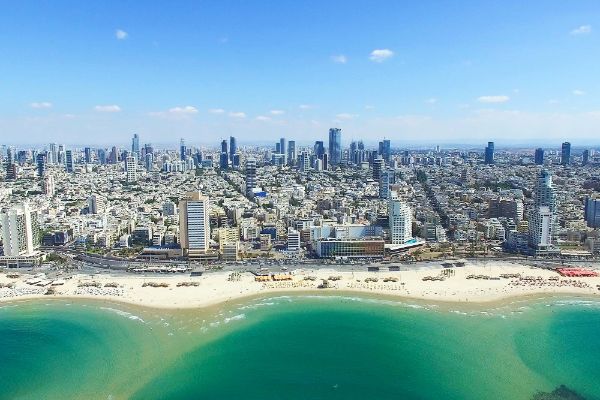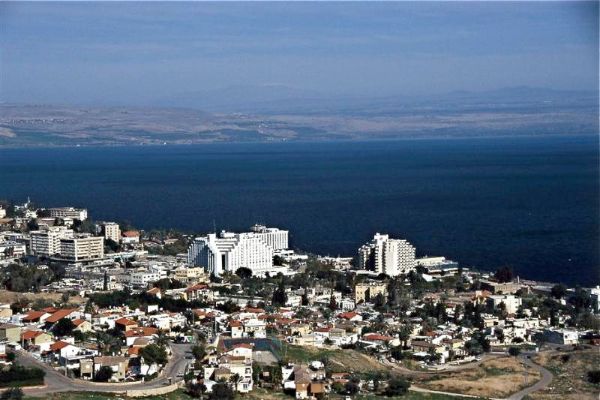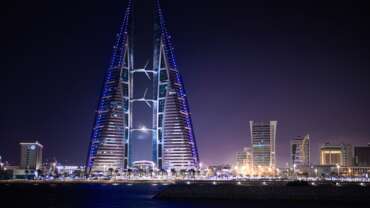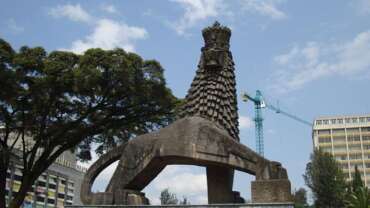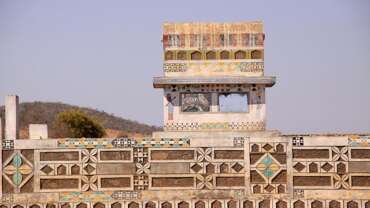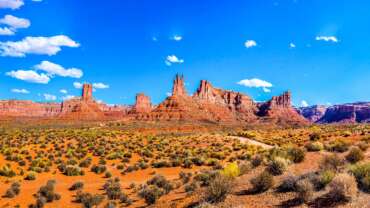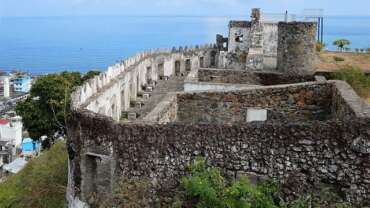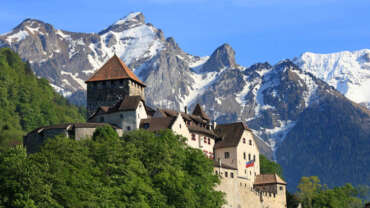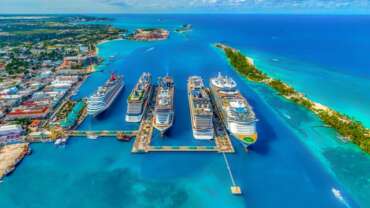Israel - Land of Creations
Israel, a Middle Eastern country on the Mediterranean Sea, is regarded by Jews, Christians and Muslims as the biblical Holy Land. Its most sacred sites are in Jerusalem. Within its Old City, the Temple Mount complex includes the Dome of the Rock shrine, the historic Western Wall, Al-Aqsa Mosque and the Church of the Holy Sepulchre. Israel’s financial hub, Tel Aviv, is known for its Bauhaus architecture and beaches.
History of Israel
The nation of Israel is the world’s first Jewish state in two millennia. It represents for Jews the restoration of their homeland after the centuries-long Diaspora that followed the demise of the Herodian kingdom in the 1st century CE. As such, it remains the focus of widespread Jewish immigration.
Origins of a modern Jewish state
Zionism
Modern Israel springs from both religious and political sources. The biblical promise of a land for the Jews and a return to the Temple in Jerusalem were enshrined in Judaism and sustained Jewish identity through an exile of 19 centuries following the failed revolts in Judaea against the Romans early in the Common Era. By the 1800s, fewer than 25,000 Jews still lived in their ancient homeland, and these were largely concentrated in Jerusalem, then a provincial backwater of the Ottoman Empire.
In the 1880s, however, a rise in European anti-Semitism and revived Jewish national pride combined to inspire a new wave of emigration to Palestine in the form of agricultural colonies financed by the Rothschilds and other wealthy families. Political Zionism came a decade later, when the Austrian journalist Theodor Herzl began advocating a Jewish state as the political solution for both anti-Semitism (he had covered the sensational Dreyfus affair in France) and a Jewish secular identity. Herzl’s brief and dramatic bid for international support from the major powers at the First Zionist Congress (August 1897) failed, but, after his death in 1904, the surviving Zionist organization under the leadership of Chaim Weizmann undertook a major effort to increase the Jewish population in Palestine while continuing to search for political assistance.
These efforts could only be on a small scale while the Ottoman Turks ruled what the Europeans called Palestine (from Palaestina, “Land of the Philistines,” the Latin name given Judaea by the Romans). But in 1917, during World War I, the Zionists persuaded the British government to issue the Balfour Declaration, a document that committed Britain to facilitate the establishment of a “Jewish homeland” in Palestine. Amid considerable controversy over conflicting wartime promises to the Arabs and French, Britain succeeded in gaining the endorsement of the declaration by the new League of Nations, which placed Palestine under British mandate. This achievement reflected a heady mixture of religious and imperial motivations that Britain would find difficult to reconcile in the troubled years ahead.
Immigration and conflict
The Zionist goal of Jewish statehood was violently opposed by the local Arab leaders, who saw the Ottoman defeat as an opportunity either to create their own state or to join a larger Arab entity—thus reviving the old Arab empire of early Islamic times. British efforts to bring the Zionists and the Arabs together in a cooperative government failed, and serious disorders, escalating into organized violence, were to mark the mandate, culminating in the Arab Revolt of 1936–39. This period also marked the birth of local Jewish defense forces. The largest and most widely representative of the various militias, the Haganah (“Defense”) was a branch of the Jewish Agency, the organization most responsible for bringing Jews to Israel.
People of Israel
Religious and ethnic groups
Jews constitute about three-fourths of the total population of Israel. Almost all the rest are Palestinian Arabs, of whom most (roughly three-fourths) are Muslim; the remaining Arabs are Christians and Druze, who each make up only a small fraction of the total population. Arabs are the overwhelming majority in the Gaza Strip and the occupied territory of the West Bank. (For information on Palestinians residing outside Israel, see Palestine.)
Jews
The Jewish population is diverse. Jews from eastern and western Europe, the Middle East and North Africa, Central Asia, North America, and Latin America have been immigrating to this area since the late 19th century. Differing in ethnic origin and culture, they brought with them languages and customs from a variety of countries. The Jewish community today includes survivors of the Holocaust, offspring of those survivors, and émigrés escaping anti-Semitism. The revival of Hebrew as a common language and a strong Israeli national consciousness have facilitated the assimilation of newcomers to Israel but not completely eradicated native ethnicities. For example, religious Jews immigrating to Israel generally continue to pray in synagogues established by their respective communities.
Religious Jewry in Israel constitutes a significant and articulate section of the population. As such, it is often at odds with a strong secular sector that seeks to prevent religious bodies and authorities from dominating national life. The two main religious-ethnic groupings are those Jews from central and eastern Europe and their descendants who follow the Ashkenazic traditions and those Jews from the Mediterranean region and North Africa who follow the Sephardic. There are two chief rabbis in Israel, one Ashkenazi and one Sephardi. Tension is frequent between the two groups, largely because of their cultural differences and the social and political dominance of the Ashkenazim in Israeli society. Until recently, it was generally true that the Sephardim tended to be poorer, less educated, and less represented in higher political office than the Ashkenazim.
Karaites
The Karaites are a Jewish sect that emerged in the early Middle Ages. Several thousand members live in Ramla, and more recently in Beersheba and Ashdod. Like other religious minorities, they have their own religious courts and communal organizations. Considered part of Jewish society, they have maintained their separate identity by resisting intermarriage and preserving their religious rites based on the Torah as the sole source of religious law.
Samaritans
Samaritans trace their roots to those Jews not dispersed when the Assyrians conquered Israel in the 8th century BCE. About half of the few hundred surviving members of the Samaritan community live near Tel Aviv in the town of Ḥolon. The rest live on Mount Gerizim (Arabic: Jabal al-Ṭūr), near Nāblus in the West Bank. They preserve their separate religious and communal organizations and speak Arabic but pray in an archaic form of Hebrew. They participate in national life as part of the Jewish section of the population.
Arabs
Arabs constitute the largest single minority in Israel, and though most are Muslims of the Sunnite branch, Arab Christians form a significant minority, particularly in the Galilee region in northern Israel. Arabs, whether Christian, Muslim, or Druze, speak a dialect of Levantine Arabic and learn Modern Standard Arabic in school. An increasing number also avail themselves of higher education within Israel’s public schools and colleges, and many younger Arabs are now bilingual in Hebrew. Although most Israeli Arabs consider themselves Palestinians, all are full Israeli citizens with political and civil rights that are, with the exception of some limitations on military service, equal to those of Israeli Jews. Many Arabs participate actively in the Israeli political process, and several Arab political parties have members in the Israeli Knesset. Despite this inclusiveness, however, many Israeli Arabs still see themselves as living in an occupied state, and suspicions and antagonism persist.
Muslims
The overwhelming majority of Israel’s Muslims are Arabs. Like all other religious communities, Muslims enjoy considerable autonomy in dealing with matters of personal status. They have separate religious courts for issues such as marriage, divorce, and inheritance. The state oversees their religious institutions. Israel’s Bedouin, roughly one-tenth of the Arab population, are exclusively Muslim.
Christians
Most Christians in Israel are Arabs, and Christian communities in Israel, regardless of ethnicity, have a wide degree of autonomy in religious and communal affairs. The Greek Catholic and Greek Orthodox churches are the largest denominations, and most of them are found in Jerusalem. Apart from the Greek Orthodox church, which has a patriarchate in Jerusalem, each church is dependent to a degree on a supreme hierarch abroad. These communities include Roman Catholics and Uniates (Melchites, Maronites, Chaldean Catholics, Syrian Catholics, and Armenian Catholics). Jerusalem also has a Russian Orthodox community. The Evangelical, Episcopal, and Lutheran churches are small and primarily Arabic-speaking.
Druze
The Druze, who live in villages in Galilee and around Mount Carmel, have traditionally formed a closed, tight-knit community and practice a secretive religion founded in 11th-century Fāṭimid Egypt. Though Israeli Druze maintain contact with coreligionists in Lebanon and Syria, members of each group adhere to the authority of the country of their residence. Israel has recognized the Druze as a separate Arab community since 1957, and Israeli Druze serve in the armed forces. Druze have traditionally been agriculturists, but younger members have found employment throughout the economy.
Other groups
The Bahāʾī faith, a universal religion founded in Iran in the mid-19th century, is the only religion other than Judaism to have its world centre in Israel. A teaching centre, archive building, shrine, and administrative headquarters are located on Mount Carmel in Haifa. There are a few hundred adherents in Israel, most of whom are employed at the centre in Haifa.
The Circassians, who are Sunnite Muslims, emigrated from the Caucasus in the 1870s. They number a few thousand and live in villages in Galilee, preserving their native language and traditions. Older Circassians speak Arabic as well as the Circassian language, but members of the younger generation speak Hebrew. The men serve in the Israeli armed forces.
Art & Culture of Israel
The arts
The Israel Philharmonic Orchestra has earned a worldwide reputation for classical music, and Israeli artists such as violinists Itzhak Perlman and Pinchas Zukerman and pianist and conductor Daniel Barenboim have had prominent international careers. Folk dancing and popular singing enjoy widespread interest and combine foreign elements with original creative manifestations. The Sephardic, Ashkenazic, and Arab Palestinian communities have all preserved parts of their ethnic music and dance traditions. In 2000 the Education Ministry began including Israeli-Arab writers in the literature curriculum of state secular schools. Painting and sculpture are still largely influenced by European schools, but local styles have begun to emerge, and several “primitive” artists whose works depict biblical and local themes have become popular. In literature, poetry, and drama, a concentration on themes of the Diaspora is giving way to an interest in national themes, including the Holocaust. Among Israel’s most distinguished writers is Shmuel Yosef Agnon (1888–1970), who received the Nobel Prize for Literature in 1966.
Thanks to an advanced and pervasive communication infrastructure, including cable, satellite, and Internet access, Israeli popular culture is well informed and tuned to the latest international trends and performers. New Israeli pop singers and groups performing in Hebrew emerge frequently. The sound is global and is influenced by folk, rock, and all the latest pop styles, but the lyrics are uniquely Israeli, reflecting the concerns of the nation’s youth. At the same time lively and locally produced talk shows in Hebrew are prime-time favourites. In addition to cable and satellite access, Arab neighbourhoods and towns bristle with TV antennas permitting reception from neighbouring Arab countries and making Arabic pop music widely available.
Cultural Life
The cultural milieu
There has been little cultural interchange between the Jewish and Arab sections of Israel’s population, although Jews arriving in Israel from communities throughout the world, including the Arab-Muslim Middle East, have brought with them both their own cultural inheritance and elements absorbed from the majority cultures in which they dwelt over the centuries. The intermingling of the Ashkenazi, Sephardi, and Middle Eastern traditions has been of profound importance in forging modern Israel; however, the arrival of immigrants from Russia and other former Soviet republics has slowed the trend, common among immigrants from central Europe and America, toward creating a cultural synthesis embracing East, West, and native Israeli society. The revival of the Hebrew language, not spoken since biblical times, has also been of great importance in the development of Israel’s modern culture. This diverse cultural heritage and shared language, along with a common Jewish tradition, both religious and historical, form the foundation of cultural life in Israel.
WESTERN WALL WONDERS

The Western Wall (or Kotel, in Hebrew) was part of the most magnificent building Jerusalem had ever seen, which was the Second Temple, built by the great King Herod.
The Second Temple was destroyed in the year 70 CE and despite the destruction that took place, all four of the Temple Mount support walls remained standing. Throughout the generations since the Temple’s destruction, the Western Wall was the remnant closest to the site of the Temple’s ‘holies of holies – a place where only the Jewish High Priests were allowed, as it was there they believed God was present. The actual remains of the Temple can be found the Western Wall Tunnels, which are an extraordinary journey through time.
For centuries Jewish People from around the world have been going there to mourn the loss of this grand temple. You will often find hundreds of people of different nationalities and religions’ pouring out their heart with prayers as the wall is believed to have enormous spiritual significance.
It is tradition for the people that visit to write a note and place it in the cracks of the Western Wall, as it is believed the message will be taken to God. You will often find doves resting in the crevices of this impressive structure, which are a symbol of peace.
The Western Wall is a national symbol as the ancient bricks have seen Israel and the Jewish peoples birth, exile and redemption. It’s a very popular location for national ceremonies.




